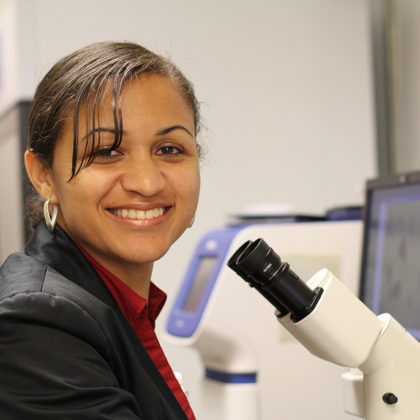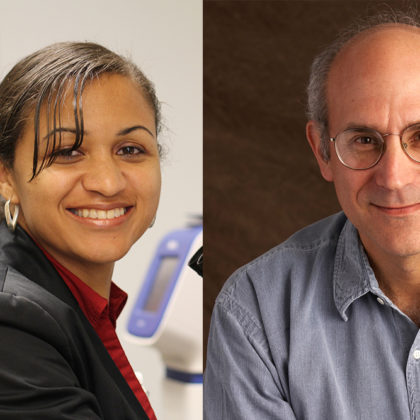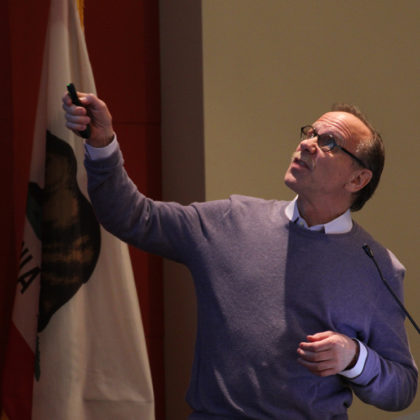Dr. Georgia’s research involves the regeneration of insulin-producing, pancreatic beta cells as a potential therapeutic for patients with type 1 diabetes. Some of her recent work describes how an enzyme DNMT1 is critical to stem cells differentiating into pancreatic beta cells.
Stories
What I’m reading: A top pick from stem cell faculty member Senta Georgia
In the human pancreas, groups of so-called “endocrine cells” secrete the hormones insulin and glucagon, which are critical for regulating blood glucose levels; dysregulation of hormone secretion can lead to diabetes. In …
USC Stem Cell researcher Senta Georgia wins CIRM Discovery Inception award
Senta Georgia—principal investigator at Children’s Hospital Los Angeles (CHLA), and assistant professor of pediatrics, and stem cell biology and regenerative medicine at USC—has a creative idea for helping children with a genetic …
New USC course follows human development from stem cells to sternum
What don’t we know about human development, and what can go wrong? By focusing on these two big questions, a new 2-unit fall course will provide USC undergraduates with the opportunity to …
USC Stem Cell Symposium creates scientific synergy
Provost Michael Quick convened the inaugural USC Stem Cell Symposium with a straightforward truth about the future of regenerative medicine: “it will take a dedicated community of scholars across the disciplines to …
Senta Georgia imagines intestinal cells that make insulin
For Senta Georgia, PhD, stem cell research offers a window into much more than the biology of pancreatic cells and diabetes. “Molecular biology is elegant,” said Georgia, principal investigator at the Saban …



